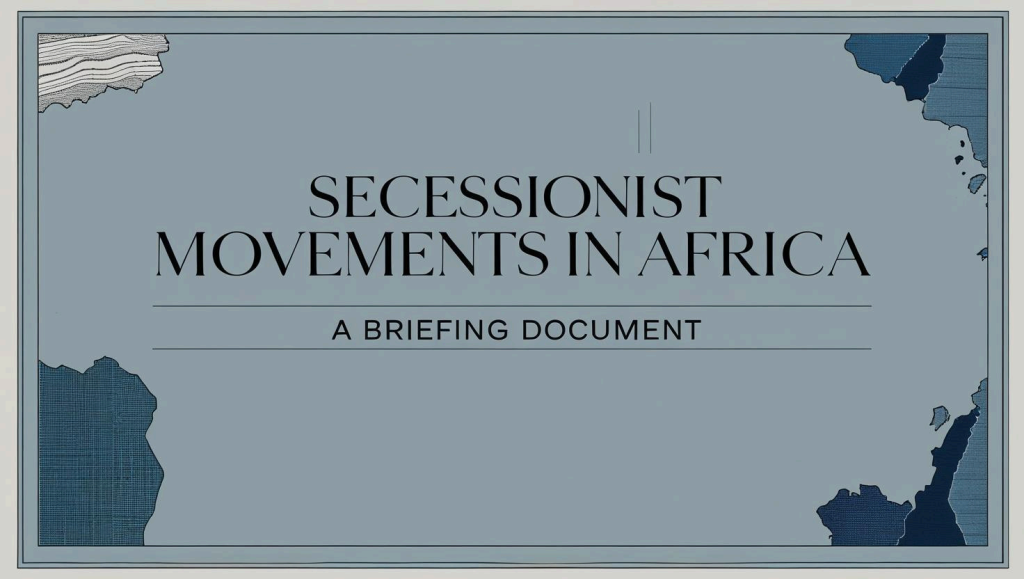
This briefing document summarizes the key themes and facts from the provided sources regarding secessionist movements in Africa, with a particular focus on the Anglophone Crisis in Cameroon, and includes insights into other significant cases like Cabinda, Biafra, Tigray, and Western Sahara.
Across the continent, secessionist movements continue to shape Africa’s political and human rights landscape; exposing deep cracks in postcolonial governance, national identity, and resource control. The AI Salon’s latest special report maps these movements and the heavy-handed state responses that sustain the cycle of repression and revolt.Secessionism in Africa takes many forms; from aspirational projects of self-determination to grievance-driven insurgencies and elite posturing for political leverage. Yet their roots converge on familiar ground: histories of marginalisation, betrayal of autonomy promises, and violent suppression by central governments.
Cameroon’s Anglophone Crisis: A Case Study in Entrenched Violence
Now entering its ninth year, the Anglophone conflict remains one of Africa’s most brutal and underreported wars. Born from protests by teachers and lawyers in 2016, it has spiralled into a devastating guerrilla war between government forces and separatist groups seeking independence as “Ambazonia.”
Over 10,000 people have died, and more than a million are displaced. The report documents systematic abuses by both sides; state forces accused of extrajudicial killings, torture, and sexual violence, and separatist militias of kidnappings, civilian attacks, and forced school closures.
The state’s response, internet shutdowns, mass arrests, and military crackdowns, reflects a wider continental pattern where “national unity” becomes a shield for state impunity.
Other Flashpoints
Cabinda (Angola): A resource-rich enclave suppressed through heavy militarisation, despite non-violent independence efforts.
Biafra (Nigeria): A legacy of civil war revived through the IPOB movement, met with lethal crackdowns and mass arrests.
Tigray (Ethiopia): A modern war of autonomy turned humanitarian catastrophe, marked by ethnic cleansing and famine conditions.
Western Sahara: Africa’s last unresolved decolonisation case, where Morocco’s occupation continues amid repression, torture, and resource plunder.
The Pattern
Across cases, the same script unfolds: centralised states equate dissent with terrorism, deploy sexual violence as a weapon of war, and silence information through communication blackouts and press intimidation.
Meanwhile, diaspora networks, social media mobilisation, and the militarisation of identity politics have given these movements new digital and transnational life. The report concludes that no African secessionist movement has achieved full independence since South Sudan (2011); not because grievances have faded, but because authoritarian governance, resource politics, and external complicity make peaceful resolution almost impossible.
Read full report below.
Date of Production:
July 11, 2025
Updated on 14 October 2025
